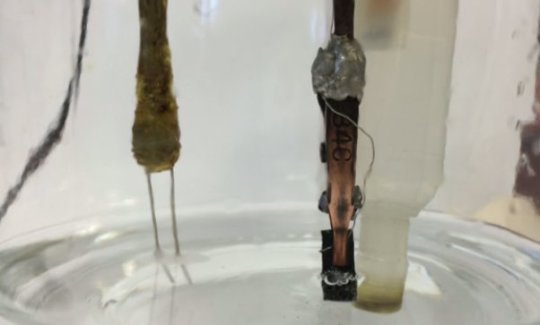
Breaking News
 Rand Paul just revealed he's working with RFK Jr. to prosecute Fauci. But Trump's DOJ is ign
Rand Paul just revealed he's working with RFK Jr. to prosecute Fauci. But Trump's DOJ is ign
 BREAKING EXCLUSIVE: "I Think Bill Gates Is The Boss," Epstein Survivor Claims Gates Was...
BREAKING EXCLUSIVE: "I Think Bill Gates Is The Boss," Epstein Survivor Claims Gates Was...
 Musk Offers Free Starlink As Iran Protests Endure Internet, Comms Blackout
Musk Offers Free Starlink As Iran Protests Endure Internet, Comms Blackout
 South Korea Seeks Death Penalty For Ex-President Yoon's Botched Martial Law Attempt
South Korea Seeks Death Penalty For Ex-President Yoon's Botched Martial Law Attempt
Top Tech News
 Superheat Unveils the H1: A Revolutionary Bitcoin-Mining Water Heater at CES 2026
Superheat Unveils the H1: A Revolutionary Bitcoin-Mining Water Heater at CES 2026
 World's most powerful hypergravity machine is 1,900X stronger than Earth
World's most powerful hypergravity machine is 1,900X stronger than Earth
 New battery idea gets lots of power out of unusual sulfur chemistry
New battery idea gets lots of power out of unusual sulfur chemistry
 Anti-Aging Drug Regrows Knee Cartilage in Major Breakthrough That Could End Knee Replacements
Anti-Aging Drug Regrows Knee Cartilage in Major Breakthrough That Could End Knee Replacements
 Scientists say recent advances in Quantum Entanglement...
Scientists say recent advances in Quantum Entanglement...
 Solid-State Batteries Are In 'Trailblazer' Mode. What's Holding Them Up?
Solid-State Batteries Are In 'Trailblazer' Mode. What's Holding Them Up?
 US Farmers Began Using Chemical Fertilizer After WW2. Comfrey Is a Natural Super Fertilizer
US Farmers Began Using Chemical Fertilizer After WW2. Comfrey Is a Natural Super Fertilizer
 Kawasaki's four-legged robot-horse vehicle is going into production
Kawasaki's four-legged robot-horse vehicle is going into production
 The First Production All-Solid-State Battery Is Here, And It Promises 5-Minute Charging
The First Production All-Solid-State Battery Is Here, And It Promises 5-Minute Charging
New, more efficient catalyst for water splitting

Physicists have discovered a catalyst that can split water into hydrogen and oxygen, composed of easily available, low-cost materials and operating far more efficiently than previous catalysts. That would solve one of the primary hurdles remaining in using water to produce hydrogen, one of the most promising sources of clean energy.
That would solve one of the primary hurdles remaining in using water to produce hydrogen, one of the most promising sources of clean energy.
"Hydrogen is the cleanest primary energy source we have on earth," said Paul C. W. Chu, TLL Temple Chair of Science and founding director and chief scientist of the Texas Center for Superconductivity at UH. "Water could be the most abundant source of hydrogen if one could separate the hydrogen from its strong bond with oxygen in the water by using a catalyst."
Chu and colleagues including physicists Zhifeng Ren and Shuo Chen, both of whom also are principal investigators with the Texas Center for Superconductivity at UH, report their discovery -- an efficient catalyst produced without the expensive precious metals most commonly used -- this week in the Proceedings of the Natural Academy of Sciences.

 Storage doesn't get much cheaper than this
Storage doesn't get much cheaper than this

